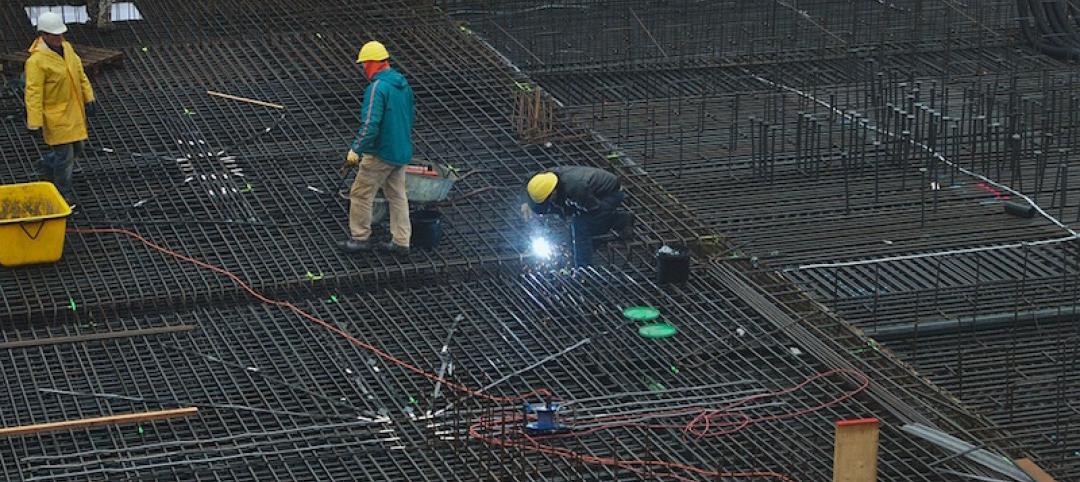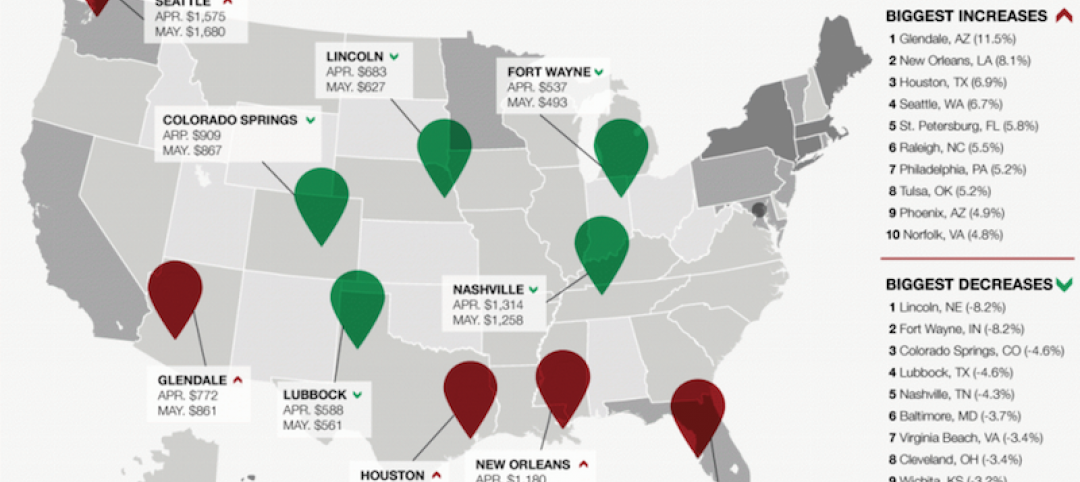As communities across the US initiate phased reopening plans, The American Institute of Architects (AIA) is releasing new resources today to support employers, public officials and design professionals with re-occupying buildings more safely.
“Communities need guidance for reopening buildings safely during the pandemic,” said 2020 AIA President Jane Frederick, FAIA. “This initiative used credible science and current infectious disease data to develop practical strategies that can help businesses reopen their doors more safely during this pandemic.”
AIA’s initiative included a team of architects, public health experts, engineers, and facility managers who developed strategies to reduce the risk of COVID-19 transmission in buildings, promote social distancing standards, and enhance wellbeing in communities transitioning to new lifestyle norms. A comprehensive report of the initiative is available on AIA’s website.
Initial outcomes from the team were used to develop new and enhanced tools that can assist employers, building owners, and design teams with best practices to protect the health, safety and welfare of the public while providing services.
- Tool #1 - Risk Management Plan for Buildings – Provides a comprehensive process for assessing hazards in buildings and reducing risk. This methodology not only can be applied during the pandemic but for all shocks and stresses to create more resilient buildings and businesses.
- Tool #2 - AIA Re-occupancy Assessment Tool (2.0) - Provides an enhanced framework of strategies for re-opening buildings, including restaurants, retailers, offices, senior living facilities, schools and housing.
- Tool #3 - COVID-19 ArchMap – Architects can now input design strategies that mitigate risk of COVID-19 for any building type to AIA’s map. The map is produced in partnership with the University of Kansas’ Institute of Health + Wellness Design and intended to facilitate design innovation.
Outcomes from the charettes are also being used to develop tailored strategies and considerations for offices, retailers, schools, and senior living facilities. Individualized reports will be released in phases, in the near future.
AIA’s team used a virtual charrette workshop-a method used to study specific issues in a limited time frame using an intense brainstorming session-to develop the strategies.
As part of the sessions, a group of public, environmental, and occupational health experts and physicians provided an independently developed, 90-minute briefing on SARS-CoV-2 infectious disease transmission, epidemiological models, and insights into the most current research of the virus as of early May.
A complete summary of the public health briefing is available online.
Visit AIA’s website for more COVID-19 resources for architects.
Related Stories
Market Data | Jun 21, 2017
Design billings maintain solid footing, strong momentum reflected in project inquiries/design contracts
Balanced growth results in billings gains in all sectors.
Market Data | Jun 16, 2017
Residential construction was strong, but not enough, in 2016
The Joint Center for Housing Studies’ latest report expects minorities and millennials to account for the lion’s share of household formations through 2035.
Industry Research | Jun 15, 2017
Commercial Construction Index indicates high revenue and employment expectations for 2017
USG Corporation (USG) and U.S. Chamber of Commerce release survey results gauging confidence among industry leaders.
Market Data | Jun 2, 2017
Nonresidential construction spending falls in 13 of 16 segments in April
Nonresidential construction spending fell 1.7% in April 2017, totaling $696.3 billion on a seasonally adjusted, annualized basis, according to analysis of U.S. Census Bureau data released today by Associated Builders and Contractors.
Industry Research | May 25, 2017
Project labor agreement mandates inflate cost of construction 13%
Ohio schools built under government-mandated project labor agreements (PLAs) cost 13.12 percent more than schools that were bid and constructed through fair and open competition.
Market Data | May 24, 2017
Design billings increasing entering height of construction season
All regions report positive business conditions.
Market Data | May 24, 2017
The top franchise companies in the construction pipeline
3 franchise companies comprise 65% of all rooms in the Total Pipeline.
Industry Research | May 24, 2017
These buildings paid the highest property taxes in 2016
Office buildings dominate the list, but a residential community climbed as high as number two on the list.
Market Data | May 16, 2017
Construction firms add 5,000 jobs in April
Unemployment down to 4.4%; Specialty trade jobs dip slightly.
Multifamily Housing | May 10, 2017
May 2017 National Apartment Report
Median one-bedroom rent rose to $1,012 in April, the highest it has been since January.

















